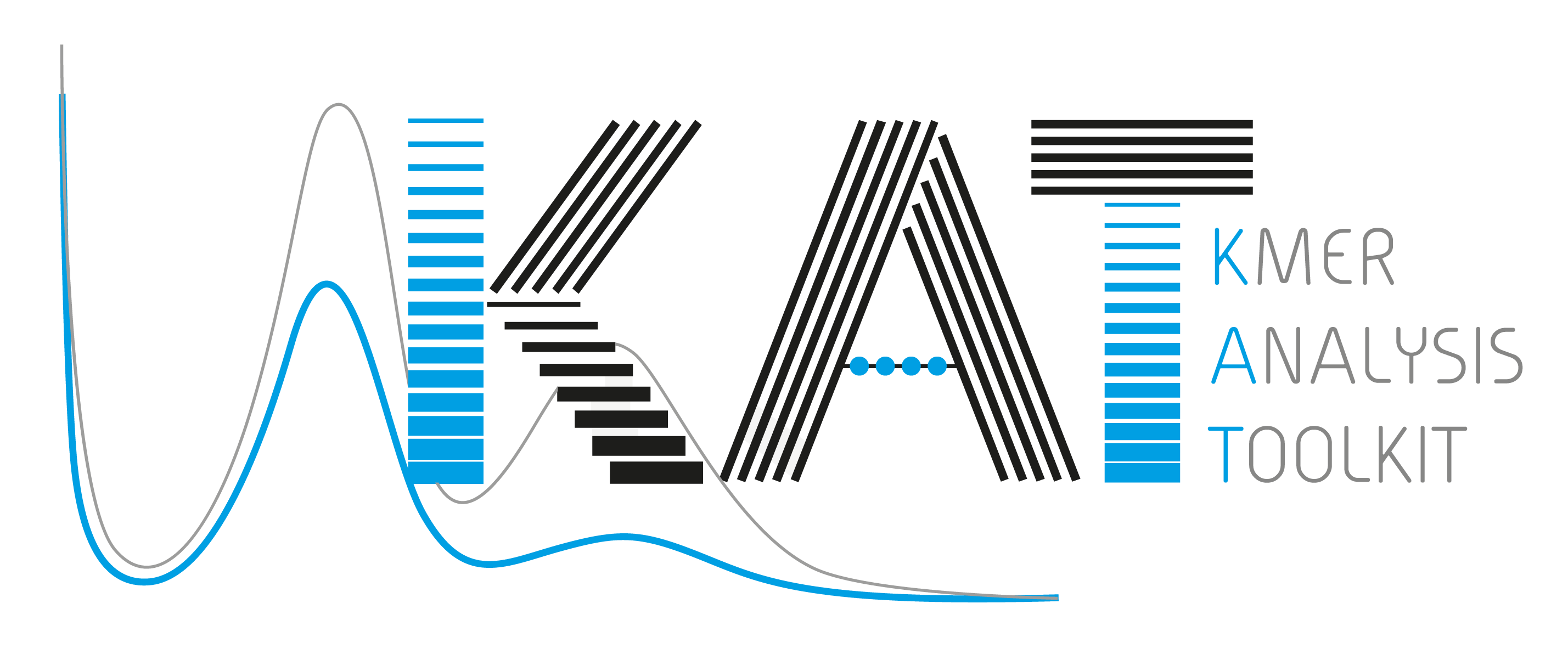5. Frequently Asked Questions¶
5.1. Can KAT handle compressed sequence files?¶
Yes, as of V2.4.0, KAT has native support for gzip decompression, so just treat gzipped files as regular uncompressed fastq or fasta files.
If you wish to decompress other files such as bzip (or if you are using a pre V2.4.0 KAT), then this is supported via named pipes. Anonymous named pipes (process substitution) is also supported.
For example, say we wanted to run kat hist using
bz2 paired end dataset, we can use a named pipe to do this as follows:
mkfifo pe_dataset.fq && bzip2 -d -c pe_dataset_?.fq.bz2 > pe_dataset.fq &
kat hist -o pe_dataset.hist pe_dataset.fq
Where pe_dataset_?.fq.bz2, represents pe_dataset_1.fq.bz2 and pe_dataset_2.fq.bz2.
For those unfamiliar with named pipes, the first line will create an empty file in your working directory called pe_dataset.fq and then specifies that anything consuming from the named pipe will take data that has been gunzipped first. To be clear this means you do not have to decompress the gzipped files to disk, this happens on the fly as consumed by KAT.
Alternatively, using process substitution we could write the previous example more concisely in a single line like this:
kat hist -o oe_dataset.hist <(bzip2 -d -c pe_dataset_?.fq.bz2)
As a more complex example, the KAT comp tool can be driven in spectra-cn mode using both compressed paired end reads and a compressed assembly as follows:
kat comp -o oe_spectra_cn <(bzip2 -d -c pe_dataset_?.fq.bz2) <(bzip2 -d -c asm.fa.bz2)
Thanks to John Davey and Torsten Seeman for suggesting this.
5.2. Why is jellyfish bundled with KAT?¶
We require a stable interface to the k-mer hash arrays produced by jellyfish hence, we are reliant on a particular version of jellyfish to guarantee that KAT works correctly. Instead of potentially requiring the user to install multiple jellyfish instances on their machine, we bundle our own version, with all jellyfish binaries prefixed with kat_ in order to avoid any naming clashes with official jellyfish releases. We have also made several modifications to jellyfish which make it more suitable to processing via KAT.
5.3. Where’s the distributable tarball for post-V2.4.0 releases?¶
As of V2.4.0, we no longer support installation via tarball. We did this in order
to ensure boost is built alongside KAT, and this just didn’t fit well into the
`make dist` mechanism. Please follow the new installation instructions and download
KAT via `git clone`.
